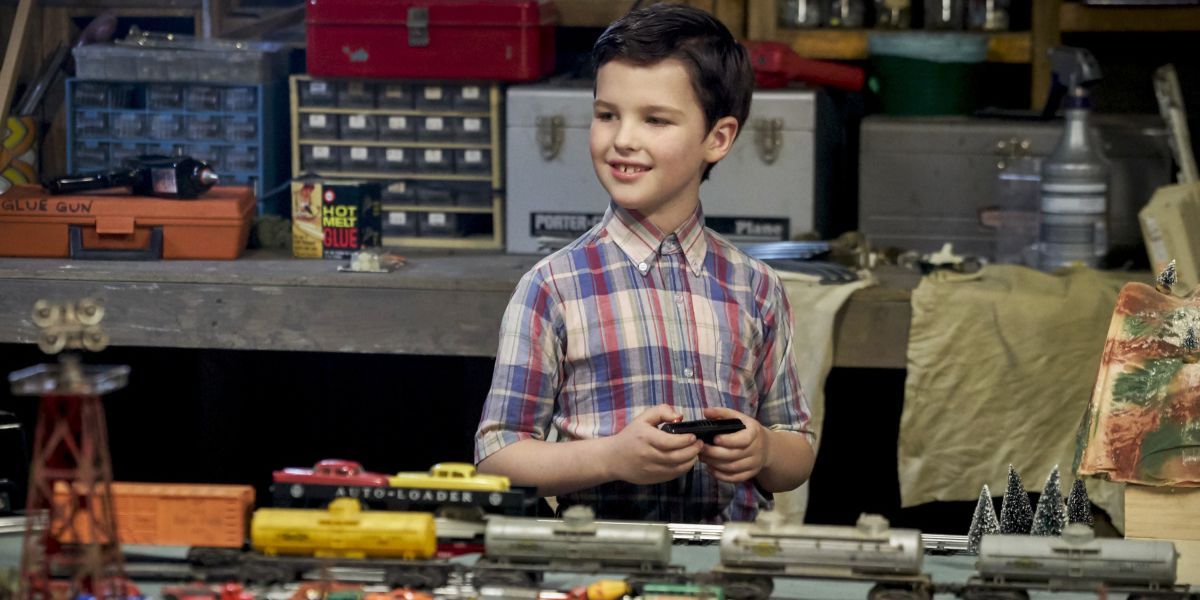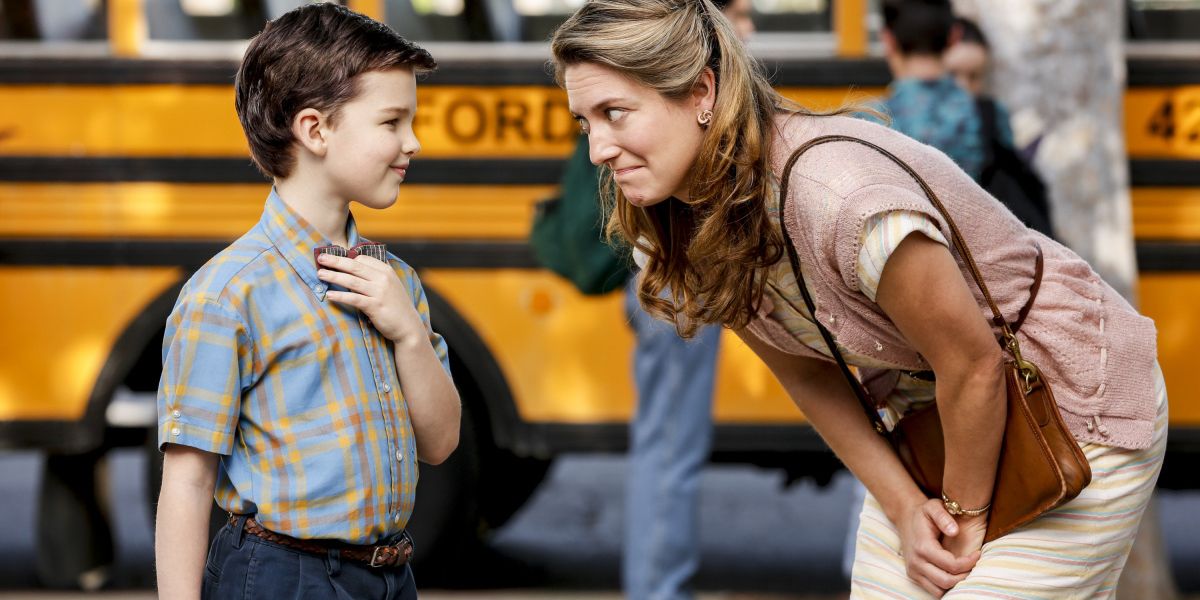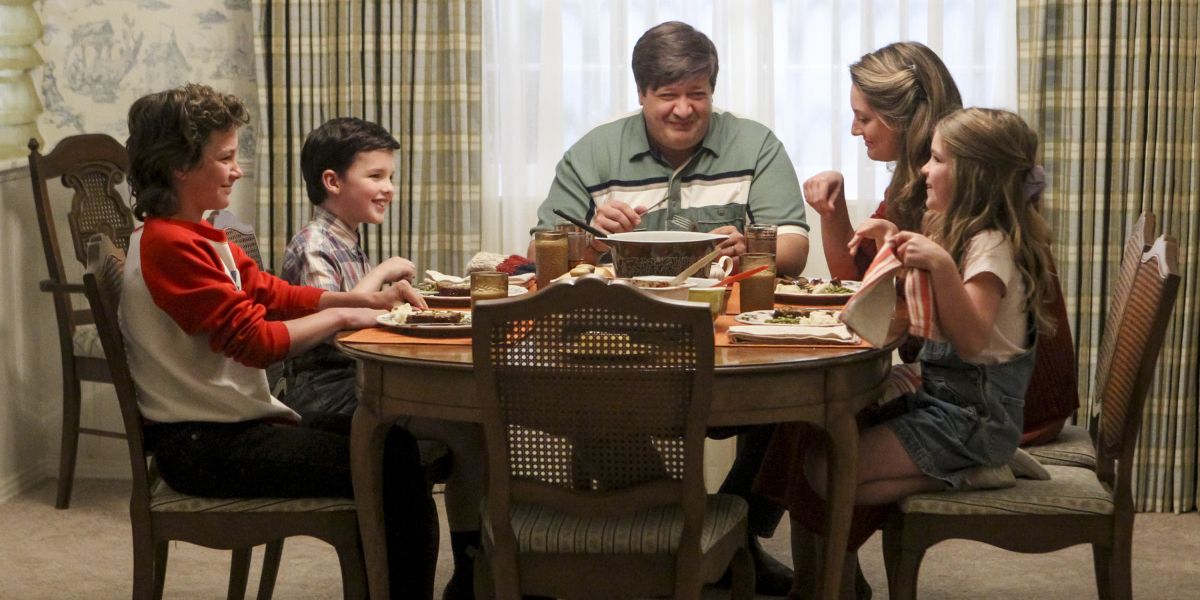CBS premieres its Big Bang Theory spinoff Young Sheldon, which surprises by how little it resembles what it was marketed as, sometimes for the better.
The Big Bang Theory spinoff Young Sheldon offers a surprisingly earnest look at the childhood of its most recognizable character, one that's light on laughs and almost entirely free from the sort of forced punch lines that dominate its progenitor. But what the show lacks in traditional sitcom convention, it earns marks for in an attempt to deliver a single-camera comedy with a remarkably different tactic. And in its effort to eschew a formula that is proven to work – reruns of The Big Bang Theory often pull in more viewers than new episodes of some popular shows – this story of a pre-teen genius and his otherwise average, middle-class family merits some credit for the degree of difficulty in its approach.
Young Sheldon supplants multiple Emmy Award winner Jim Parsons (though he does narrate the series) with Big Little Lies moppet Iain Armitage, to document the early life of Sheldon Cooper, as he grows up in rural Texas in a household and community that's not quite equipped to deal with his smarts or the quirks of his personality. Aside from being light years from The Big Bang Theory, this is the biggest challenge faced by the show. It's a situation Big Bang continues to find ways to deal with even as it begins season 12, as a large part of the appeal of Sheldon is, let's say, the multitude of eccentricities he's beset with. Those eccentricities represent a challenge for the other characters (and the writers, of course), as they tend to outshine the other geniuses of the show. So far, Chuck Lorre and his writers have chosen to enhance Sheldon's idiosyncrasies by contrasting them with those around him, and the results have pretty much worked out in the show's favor. In the first episode, however, Young Sheldon largely attempts to do the same, with one notable exception: it finds something more compelling in the charming dynamic between Armitage and Zoe Perry, who plays his patient and accepting mother Mary.
The Cooper household isn't too far from your average sitcom family, which works to the show's advantage, as Young Sheldon is nothing if not built to constantly remind viewers of the differences between its central character and the world around him. Still, Sheldon is a challenge but never a problem, even for his put-upon father George, played by Lance Barber. George is a high school football coach and father of two other children, Sheldon's twin sister Missy (Raegan Revord) and older brother George Jr. (Montana Jordan). They all have varying limits when it comes to dealing with Sheldon's quirks, which manifest primarily through various familial interactions, like donning mittens before joining hands with his family members to say grace or refusing to watch DuckTales with his sister because he won't learn anything from it.
The biggest conflict in the premiere stems from Sheldon's rapid advancement through school and the question of what happens when a nine-year-old boy begins attending the same high school as his older brother. Unlike his family, the school is wholly unprepared to handle Sheldon's personality, which, as seen on Big Bang's first season, presented him as devoid of any standard social niceties that help most people get through even the most remedial of interactions. But it's difficult to ascertain exactly what the show thinks of these teachers and fellow students, as it seems adamant about turning those without a genius-level IQ into a joke. At a certain point in the pilot, Sheldon's teachers assemble with the principal and his parents to discuss the various ways they were undermined or disrespected by a pint-sized genius, only to have the show double-down on their perceived inadequacies.
The show's apparent condescension for its characters of average intelligence is perhaps where the show most closely resembles The Big Bang Theory. But the comparisons more or less stop there. Sure, Armitage does a strong approximation of Parsons and Perry manages to capture the essence of Laurie Metcalf's performance as Mary, but at a certain point, Young Sheldon, in the premiere anyway, almost feels like its coming from an alternate reality, rather than the unlikely wistful remembrance of an anti-nostalgist like Sheldon Cooper.
Yet Young Sheldon is intent on underlining some form of nostalgia as part of its reason to exist, but the pilot never quite grasps what, exactly, the show is intended to wax nostalgic about. Once you get over the fact that it's not Big Bang Theory With Kids, the show feels a lot more like ABC's time-capsule sitcom The Goldbergs (as well as The Middle, and to a certain degree, Speechless), but without the same attention to detail paid to the decade or the verisimilitude of its setting. Whether or not that's will be important to audiences tuning in for week after week remains to be seen.
Much like The Orville, the first impression of Young Sheldon comes down to just how different it is from the way it was marketed. But unlike FOX's Star Trek… uh, homage, this is so far removed from the comedy it's spun off from it can actually use those myriad differences to its advantage. Right now, the premiere is stuck trying to do narrative math for seemingly no other reason than brand recognition. Hopefully, as the series progresses, it will begin to build the other characters around Sheldon into a kind of ensemble show that's about what it's like to be a member of the Cooper family, with a remarkable and sometimes remarkably confounding person at its center. The show has the chance to do something different with that formula, and with any luck it will figure that out before too long.
Next: How Much Are The Cast Of Big Bang Theory Being Paid?
Young Sheldon continues next Monday @8:30pm on CBS.



